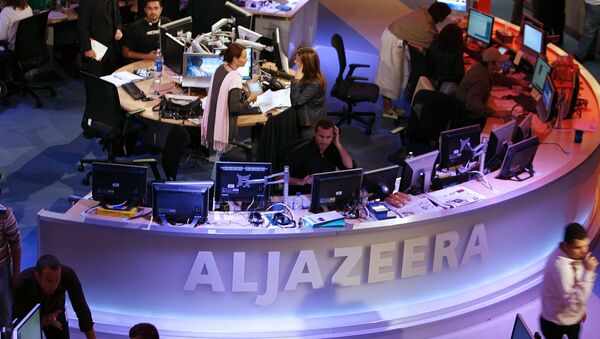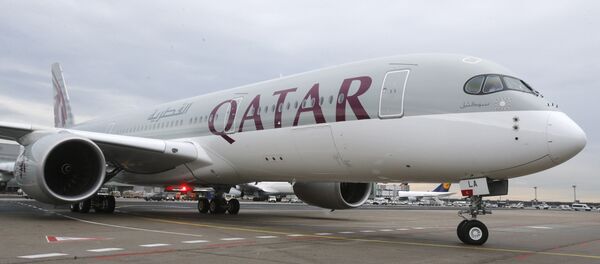MOSCOW (Sputnik) — The fake website was designed to look as part of Al Jazeera, with the reports stating that Qatari Ambassador to Russia Fahad Mohammed Attiyah accused reporters of RT, RIA Novosti and TASS of receiving bribes from the Ambassador of Saudi Arabia amounting to 600 million rubles ($9.98 million) for not publishing negative reports about the country.
"The Embassy of Qatar in Russian Federation refutes the information published in one of Russian blogs on July 31, 2017, about a ‘statement’ allegedly made by Ambassador of Qatar in the Russian Federation Fahad bin Mohammed Attiyah and which was allegedly published on the website of Al Jazeera, and considers it false and forged," a statement obtained by Sputnik said.
Abuhilala explained that the article was published on the website, the web address of which had a dot under the letter Z which does not show up on the real website. But when the users clicked on the channel logo, they got transferred to the real website of the broadcaster.
"This is a very convincing fake, the purpose of which is to incite a conflict between Al-Jazeera and the Russian media, as well as between the Russian media and Qatar in the light of the crisis in the Persian Gulf, which the Russian media is covering professionally and objectively," Abuhilala said.
The crisis around Qatar, which manifested itself in the severance of the diplomatic relations between the Arab countries and Doha, arose because of the reports on the hacked QNA which caused a sharply negative reaction from neighboring countries, primarily Saudi Arabia.
Abuhilala also said that "hackers do not stop attempts trying to hack Al-Jazeera's accounts, but they have not succeeded yet." He suggested that representatives of the UAE were behind these attempts, but did not provide evidence to back the claim.
"Such attempts reflect the influence of the channel, its reputation. That is why they use the name of the channel to spread lies and defamation," Abuhilala added.
Abdullah Khalifa al-Miftah, Director of the Public Relation Department at the Qatari Ministry of Interior, said at a press conference in Doha that a group of experts had been gathering information for several weeks about a hacking attack on QNA and its profiles in social media. According to the head of the investigation team Ali Mohamed al-Mohannadi, the IP addressed linked to the attack belonged to the United Arab Emirates.






